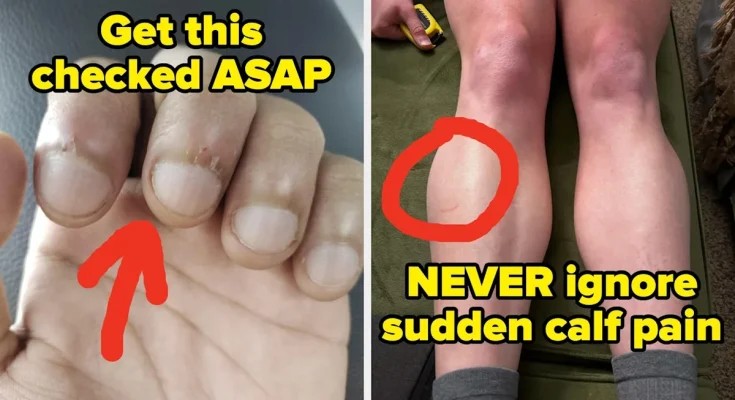We recently wrote a post where doctors and nurses revealed the health signs people shouldn’t ignore. In the comments, even more medical professionals shared the “small” health issues that are commonly overlooked but extremely serious.
Here are the eye-opening results:
1.”I’m a laboratory scientist. Our lab recently had an older woman pass away within 48 hours of admission from acute leukemia. She hadn’t had an annual check-up with her provider or blood work done in nearly three years. And what brought her to the ER was ‘generalized malaise,’ aka, not feeling well for the last few months. The takeaway: See your provider on a regular basis, even if you feel well.”
“And have blood work completed at the same frequency. This woman could have had a chance if she kept up regular medical visits.“

2.”Breast discharge. Could be due to birth-control medication, hormonal changes post-pregnancy, or something more serious, like breast cancer involving the milk ducts or a pituitary brain tumor.”
—Anonymous
3.”I’m a retired emergency room RN. Never ignore blood in urine.”
—Anonymous, 63, Canada
4.”Vascular surgeon here. The sudden onset of pain in your calf when you walk should never be ignored. Even if you have chronic pain in your calves, a sudden increase in that pain that persists for several hours should have medical intervention that day. Whether the clot is in an artery or vein, getting it addressed immediately has significant long-term effects.”
—Anonymous, 59, Virginia

6.”I work in rehab, bracing, and supports for orthopedic surgeons. A huge wake-up call for my own health was seeing normal, successful people in their 40s to 60s who couldn’t do more than one push-up or get up from a seated position on the floor, with chronic back pain, neck pain, obesity, and falling. I assumed you magically lose that strength once you’re old and retired, but no! It’s so important to consistently do some version of moderate cardio and strength training from childhood until past retirement age. Do not skip your 20s to 50s!”
“I’ve seen otherwise smart and competent patients severely and negatively impact their health and quality of life by not being active.”
—Anonymous, 29, California
7.”PARENTS, please medicate your child for fever. DO NOT bring your child to a quick care unmedicated because ‘we want you to see how sick he is.’ You don’t know how long it will be to actually see the healthcare provider; we have seen febrile seizures in our waiting room (then you get an ambulance ride right to the ER). Also, WE BELIEVE YOU! All it shows us is that you are willing to let your child unnecessarily suffer. You medicate for your illness — DON’T force your child to suffer to prove a point.”
“P.S.: Urgent Care is NOT an ER. Many Urgent Care offices have long waits because people come with EMERGENCY problems since we are closest, or ‘I don’t want to WAIT there!!!’”


